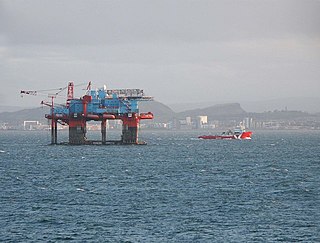Labour laws, labour code or employment laws are those that mediate the relationship between workers, employing entities, trade unions, and the government. Collective labour law relates to the tripartite relationship between employee, employer, and union.

United Kingdom labour law regulates the relations between workers, employers and trade unions. People at work in the UK have a minimum set of employment rights, from Acts of Parliament, Regulations, common law and equity. This includes the right to a minimum wage of £11.44 for over-23-year-olds from April 2023 under the National Minimum Wage Act 1998. The Working Time Regulations 1998 give the right to 28 days paid holidays, breaks from work, and attempt to limit long working hours. The Employment Rights Act 1996 gives the right to leave for child care, and the right to request flexible working patterns. The Pensions Act 2008 gives the right to be automatically enrolled in a basic occupational pension, whose funds must be protected according to the Pensions Act 1995. Workers must be able to vote for trustees of their occupational pensions under the Pensions Act 2004. In some enterprises, such as universities or NHS foundation trusts, staff can vote for the directors of the organisation. In enterprises with over 50 staff, workers must be negotiated with, with a view to agreement on any contract or workplace organisation changes, major economic developments or difficulties. The UK Corporate Governance Code recommends worker involvement in voting for a listed company's board of directors but does not yet follow international standards in protecting the right to vote in law. Collective bargaining, between democratically organised trade unions and the enterprise's management, has been seen as a "single channel" for individual workers to counteract the employer's abuse of power when it dismisses staff or fix the terms of work. Collective agreements are ultimately backed up by a trade union's right to strike: a fundamental requirement of democratic society in international law. Under the Trade Union and Labour Relations (Consolidation) Act 1992 strike action is protected when it is "in contemplation or furtherance of a trade dispute".

The National Minimum Wage Act 1998 creates a minimum wage across the United Kingdom. From 1 April 2024, the minimum wage is £11.44 for people aged 21 and over, £8.60 for 18- to 20-year-olds, and £6.40 for 16- to 17-year-olds and apprentices.
A zero-hour contract is a type of employment contract in United Kingdom labour law, between an employer and an employee whereby the employer is not obliged to provide any minimum number of working hours to the employee.

The Employment Rights Act 1996 is a United Kingdom Act of Parliament passed by the Conservative government to codify existing law on individual rights in UK labour law.

Nethermere Ltd v Gardiner And Another [1984] ICR 612 is a UK labour law case in the Court of Appeal in the field of home work and vulnerable workers. Many labour and employment rights, such as unfair dismissal, in Britain depend on one's status as an "employee" rather than being "self-employed", or some other "worker". This case stands for the proposition that where "mutuality of obligation" between employers and casual or temporary workers exists to offer work and accept it, the court will find that the applicant has a "contract of employment" and is therefore an employee.
United Kingdom agency worker law refers to the law which regulates people's work through employment agencies in the United Kingdom. Though statistics are disputed, there are currently between half a million and one and a half million agency workers in the UK, and probably over 17,000 agencies. As a result of judge made law and absence of statutory protection, agency workers have more flexible pay and working conditions than permanent staff covered under the Employment Rights Act 1996.

The Working Time Regulations 1998 is a statutory instrument in UK labour law which implemented the EU Working Time Directive 2003. It was updated in 1999, but these amendments were then withdrawn in 2006 following a legal challenge in the European Court of Justice. It does not extend to Northern Ireland.
MacCartney v Oversley House Management [2006] IRLR 514 is a UK labour law case regarding the National Minimum Wage Act 1998.
Walton v Independent Living Organisation [2003] EWCA Civ 199 is a UK labour law case regarding the National Minimum Wage Act 1998.

British Nursing Association v Inland Revenue[2002] EWCA Civ 494 is a UK labour law case regarding the National Minimum Wage Act 1998.
Robinson-Steele v RD Retail Services Ltd (2006) C-131/04 is a European labour law and UK labour law case concerning the Working Time Directive, which is relevant for the Working Time Regulations 1998.

British Airways plc v Williams (2011) C-155/10 is a UK labour law and EU law decision by the European Court of Justice regarding the right to holidays with pay, which is found in the Universal Declaration on Human Rights article 24, the Working Time Directive and the Working Time Regulations 1998. Williams itself was decided under analogous rules found in the Civil Aviation Regulations 2004. It held that variable components in pay, such as bonuses, must be included in the amount of pay people receive while they are on holiday.

Autoclenz Ltd v Belcher [2011] UKSC 41 is a landmark UK labour law and English contract law case decided by the Supreme Court of the United Kingdom, concerning the scope of statutory protection of rights for working individuals. It confirmed the view, also taken by the Court of Appeal, that the relative bargaining power of the parties must be taken into account when deciding whether a person counts as an employee, to get employment rights. As Lord Clarke said,
the relative bargaining power of the parties must be taken into account in deciding whether the terms of any written agreement in truth represent what was agreed and the true agreement will often have to be gleaned from all the circumstances of the case, of which the written agreement is only a part. This may be described as a purposive approach to the problem.
France v James Coombes & Co [1929] AC 496 is an old UK labour law case, concerning the definition of ‘employee’ for the purpose of section 8 of the Trade Boards Act 1909 and the Trade Boards Act 1918.
Clay Cross Ltd v Fletcher [1978] 1 WLR 1429 is a UK labour law case concerning sex discrimination, unequal pay, and the limits of justifications for it. It would now fall under the Equality Act 2010 sections 64 to 80.

Russell v Transocean International Resources Ltd [2011] UKSC 57 is a UK labour law case, concerning the interpretation of the Working Time Directive. It is notable that Lord Hope remarked that the right to paid holidays is probably best interpreted as requiring that workers may take a whole week at a time, rather than individual days.

Uber BV v Aslam [2021] UKSC 5 is a landmark case in UK labour law and company law on employment rights. The UK Supreme Court held the transport corporation, Uber, must pay its drivers the national living wage, and at least 28 days paid holidays, from the time that drivers log onto the Uber app, and are willing and able to work. The Supreme Court decision was unanimous, and upheld the Court of Appeal, Employment Appeal Tribunal, and Employment Tribunal. The Supreme Court, and all courts below, left open whether the drivers are also employees but indicated that the criteria for employment status was fulfilled, given Uber's control over drivers.

Pimlico Plumbers Ltd v Smith [2018] UKSC 29 is a UK labour law case, concerning the status of a plumbing and heating engineer, as, at least, a "worker" within the meaning of section 230(3) of the Employment Rights Act 1996 and other UK legislation, for the purpose of assessing his entitlement to holiday pay and unpaid wages.

Royal Mencap Society v Tomlinson-Blake [2021] UKSC 8 is a UK labour law case, concerning the right to be paid when an employer constrains their worker's freedom.








